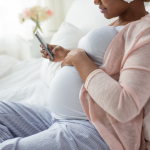The newer “atypical” or second-generation antipsychotic agents are now used to treat a spectrum of psychiatric disorders, including schizophrenia, bipolar disorder, major depression, PTSD and other anxiety disorders. The National Pregnancy Registry for Atypical Antipsychotics was created to evaluate the safety of atypical antipsychotic medications taken by women during pregnancy. The most recent publication from the registry focuses on overall risk of malformations associated with the class of medications.
Pregnant women were recruited and prospectively followed during pregnancy and the postpartum period. Eligible subjects were pregnant women between the ages of 18 and 45. As of April 9, 2020, 1,906 women had enrolled in the pregnancy registry, including 889 in the exposure group and 1,017 controls. A total of 1,311 women have completed the study and were eligible for inclusion in the analysis. Medical records were obtained for 81.3% of participants.
Among the 640 live births in the exposure group, 16 (2.50%) of the infants had a major malformation. Among the 704 live births in the control group, 14 (1.99%) had a major malformation. The estimated odds ratio for major malformations in exposed compared to unexposed infants was 1.48 (95% CI, 0.625-3.517). Because the confidence interval includes the null value of 1, we can conclude that the atypical antipsychotics as a class are unlikely to have a major teratogenic effect.
Ideally, we would like to have enough patients in this cohort to analyze each antipsychotic medication separately (as we were able to do with quetiapine); however, the study provides clinically useful information for women taking this class of medications. This study provides reassuring data regarding the safety of fetal exposure to the newer atypical antipsychotic medications in a sample of well-characterized participants followed prospectively and is consistent with previous studies assessing infants exposed to atypical antipsychotic medications. No studies thus far have demonstrated an increase in risk of malformations in children exposed to atypical antipsychotics.
The findings of this study increases our comfort with using the atypical antipsychotics in women who are pregnant or planning to conceive. We will continue to gather information on the reproductive safety of this class of medications through the National Pregnancy Registry for Atypical Antipsychotics. Those interested in the study may call TOLL-FREE to learn more 1-866-961-2388 or may fill out this Patient Interest Form to be contacted by our research coordinator. All information is kept strictly confidential.
Ruta Nonacs, MD PhD
Viguera AC, Freeman MP, Góez-Mogollón L, Sosinsky AZ, McElheny SA, Church TR, Young AV, Caplin PS, Chitayat D, Hernández-Díaz S, Cohen LS. Reproductive Safety of Second-Generation Antipsychotics: Updated Data From the Massachusetts General Hospital National Pregnancy Registry for Atypical Antipsychotics. J Clin Psychiatry. 2021 Aug 3. Free article.







Leave A Comment